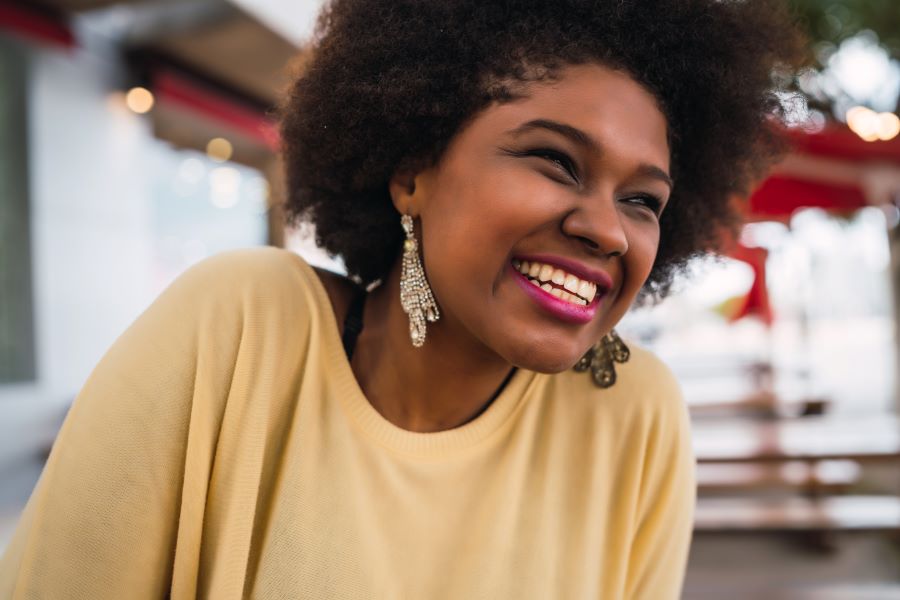It was a summer month back in 2004 when my mum sat me down and explained that my brother had just been diagnosed with Autism. Having lost a brother just the year before, I sat there with utter confusion, just praying that I wouldn’t lose my brother again.
I grew up overnight – trying to make sense of this new diagnosis and managing my life independently, as my brother would need 100% of our mother’s attention. Our financial situation was not stable, so my mum took on the role of educating herself about autism and how she could continue speech and occupational therapy at home.
Day by day, I felt my childhood slipping away from my hands. I dreaded going out in public with him. Snarky comments and dirty stares from people were too painful for me. I had to compromise to be able to accommodate my brother’s needs, such as watching one movie 50 times, not being able to hear particular songs, using specific vocabulary, declining invites from friends, and not reacting with anger when my brother had violent meltdowns.
Being a caregiver along with my mother at such a young age definitely took a toll. I put up a façade of not being affected by this, fearing that society would call me selfish for expressing the truth about reaching a stage of burnout.
There was never a moment where I sat down with mum and autism was explained in one go as an affliction. It was constant – “I will have to go because your brother is facing this challenge, this is the only way for him to understand”, “If you say it like this, maybe he will be able to understand better”, “When he feels overwhelmed, he copes by stimming and rocking back and forth. We can help him in the following ways…”
As a kid, I treated him how I would treat a ‘‘neurotypical’’ child. I thought of him as an individual, a loving brother, and a son. I separated the autism from him early on.
If you name any latest song, my brother can tell you the exact day, month or year it was released. Whilst having breakfast with him last year, he apologized for hitting me on 15th August 2011. He recalls not being able to say I love you to me, so instead he would say ‘yavyu’. He is a fashion model, ace photographer, graphic designer and gym buff.
I moved overseas about 3 years ago and not a day goes by where he doesn’t wish me good morning or goodnight. FaceTiming me is the highlight of his day and likewise. He loves sending me his latest graphic design project because I am his biggest fan. He maintains an anxiety journal and tells me about his dream to visit Tomorrowland and travel the world with me.
My brother taught me empathy, patience, sacrifice and unconditional love. He also taught me that feelings of grief, fear, chaos and stress can exist at the same time.
A normal day in my life is worrying if he would be able to cross the road himself. Will he be able to fight back if he is assaulted? How will I know if he is still being bullied? How does he feel being on stage in front of an audience? Will he ever be able to experience love or starting a family? Will my future husband accept him? How will I manage my own life when mum is no longer alive? Does he long to move overseas and live the life that I do? What will he do when I pass away? What if there is so much he wants to communicate but can’t due to his limited speech? How does he feel when he is looked upon as ‘abnormal’ by strangers on the street? Will he be able to order food at a restaurant by himself? What if the staff is impatient with him? Does he understand what it means to have a sibling?
I know what I am ‘supposed to do’ for handling these anxious thoughts. Does it help? Absolutely not. What gives me peace is his resilience and the strides he made, which inspire me during my darkest days. I don’t know what the future holds, but I do feel that I am the luckiest girl in the world as he chose me to be his sister. Do I have days where I reevaluate the life that I abandoned and envisioned? Absolutely. Would I have it any other way? Nope.
Being a caregiver is messy, confronting and rewarding. There are good days and there are bad weeks. There are days I want to cry all day and pray to god for protecting him in my absence. There are also days where I am filled with joy, love and gratitude for having him in my life.


